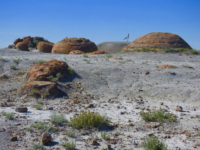Building relations important to U of L chancellor
By Jensen, Randy on June 19, 2020.
 Charles Weaselhead places his hand over his heart as he acknowledges the crowd as he was installed as the 14th Chancellor of the University of Lethbridge during the U of L’s convocation ceremony on May 30, 2019. Herald file photo by Ian Martens @IMartensHerald
Charles Weaselhead places his hand over his heart as he acknowledges the crowd as he was installed as the 14th Chancellor of the University of Lethbridge during the U of L’s convocation ceremony on May 30, 2019. Herald file photo by Ian Martens @IMartensHeraldTim Kalinowski
Lethbridge Herald
tkalinowski@lethbridgeherald.com
University of Lethbridge chancellor Charles Weaselhead has worked his entire life for the betterment of his people, and for better relations between Indigenous and non-Indigenous peoples in southern Alberta.
“I really believe every person has the power to change our community, our province, our country,” he says. “I really believe if we work together hard enough we can begin to see that we have a strong relationship together. The Indigenous and the non-Indigenous community, I think if we build on that relationship with trust, equity and respect for each other, we can do a number of great things in southern Alberta.”
Being named the U of L’s 14th chancellor in 2019 was the culmination of a long journey for Weaselhead, who once served as Grand Chief for Treaty 7, as long time Chief of Kainai First Nation, Tribal Health Director for the Blood Tribe and Blood Indian Hospital administrator. He was once also director of Poundmaker Lodge and what is today known as South Country Treatment Centre.
“I have always been focused on community service, facilitating change for the better, and taking a look at how we can improve life for our individual members,” he explains. “I wanted to act as a change agent for a better quality of life for our communities.
“I see health in a sort of holistic model,” Weaselhead adds. “That comes from my Indigenous background and our Indigenous perspective on how we improve our health condition.”
Weaselhead says the guiding focus of his life has always been to improve educational opportunities for the younger generation of Indigenous people, particularly for those in the Blood Tribe, and to work toward equality of economic opportunity for all peoples in southern Alberta.
“I want to help build a two-way street between Indigenous and non-Indigenous people,” he says. “To build a long-lasting, sustainable relationship together in a good way that fosters trust, equity and truth.”
Weaselhead credits three of his mentors for helping set him on the right path: Dr. Leroy Little Bear, who inspired Weaselhead to aspire toward greater educational opportunities by his example and to embrace the knowledge and traditions of his people; Indigenous performer and social activist Tom Jackson, who helped create bridges between First Nations and other members of Canadian society through his annual Huron Carole fundraisers; and his grandfather, who taught him his first and most important lesson.
“My grandfather told me believe in yourself, believe in the Creator, and believe in your community,” he says.
Being chancellor allows Weaselhead another special platform to work toward truth and reconciliation and to continue to inspire young people to embrace who they are and strive for excellence in all they do.
“I am very proud to be in this position,” he says. “I am just trying to help empower our young people to realize their full potential. There are a number of angles I have approached from over the years to try to bridge that gap. Our learning institutes have a really strong responsibility. They have got the resources and the influence to process some of those changes in education and help with reconciliation.”
See Saturday’s Herald for more profiles on prominent southern Alberta Indigenous people.
Follow @TimKalHerald on Twitter
18-17




